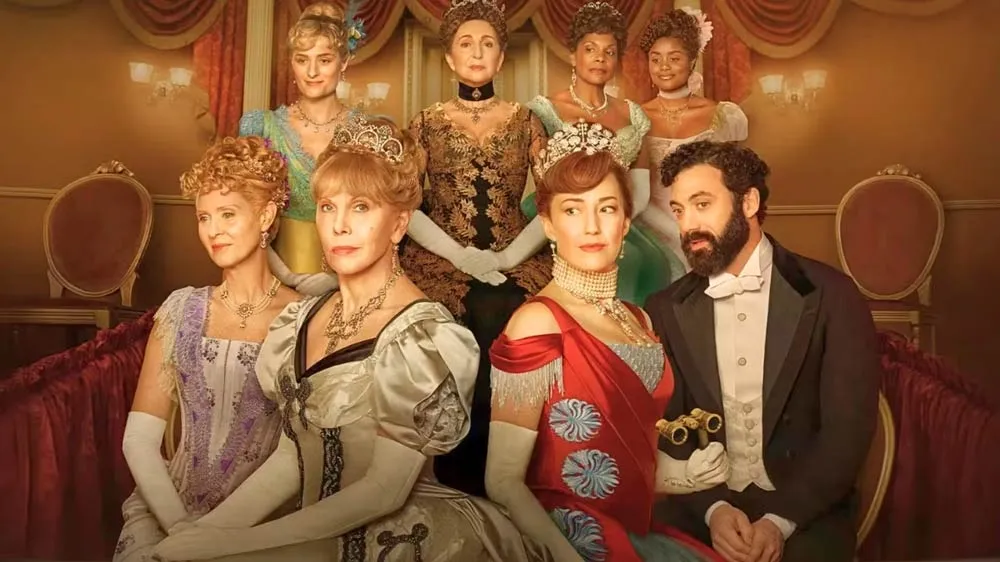February 2, 2015
Suzan-Lori Parks Recalls Becoming a Playwright (With a Little Help from James Baldwin)
Kay Bourne READ TIME: 5 MIN.
James Baldwin perceptively suggested his student Suzan-Lori Parks consider writing plays because her dialogue was so striking in her short stories that were coming across his desk.
What was the occasion for our conversation was the production of her latest play Father Comes Home From the Wars, Parts 1, 2 & 3, which opened last week at the American Repertory Theater through March 1 in a co-production with New York's Public Theater and is presented as part of The National Civil War Project.
Parks was one of the 15 students in the first creative writing class that Baldwin, who was openly gay, had ever taught; and she "was thrilled," she told EDGE, to have been chosen by Baldwin for these workshop discussions. Baldwin himself wrote plays, notable among them the 1964 "Blues For Mister Charlie," loosely based on the 1941 murder by white Southern bigots of a black boy visiting the South from Chicago who winked at the white woman who served him at a corner grocery, and inspired by the 1963 slaughter of Civil Rights activist Medgar Evers as he pulled into the driveway of his house.
Initially Crestfallen
In 1982 (or perhaps '83), the year of this seminar as she recalls, Parks was an undergraduate at Mount Holyoke College, a liberal arts college South Hadley and one of the five colleges that made up a network in Western Mass.
"We sat around a long library table," she said of the intimate conversations held about each student's work. "I had not considered going into theater at that time," she told EDGE.
"We didn't get grades, we got comments. I was crestfallen at his remarks at first because I thought he meant he didn't like my writing. But I said to myself, well, why not give it a try. He had written his comment down on a piece of paper with the Hampshire College crest at the top, the college of the five where the class was held. It was typed up.
"So I tried writing a play. I didn't have the heart to let him down," she said.
A Historical Epic
She got pushed into her name as well. The poster advertising her first play, staged Off-Off Broadway, misspelled her name as Suzan-Lori, not Susan-Lori.
"I was devastated," she recalls, but the producer said, Oh, run with it, "and I have."
The Pulitzer Prize-winner's latest play, her 20th if you count in her two screenplays, is an historical epic that resonates with themes of black equity and self emancipation that Baldwin considered throughout his work. Currently in a superb production at ART in the Loeb Drama Center, the drama, while long at nearly three hours with but one intermission, nevertheless goes by in a flash, one reviewer has commented.
Parks' meditation on freedom is part of an extended series ART looks to be doing on the Civil War, which includes a piece from Jim and Ruth Bauer, creators of "The Blue Flower," which opened at the ART in 2010, an ensemble piece on the hot button issue trial of Anthony Burns after the fugitive was captured by slavers on the streets of Boston, and an opera by Matt Aucoin, a Harvard grad and now assistant conductor at the Metropolitan Opera, focused on Walt Whitman's role as a medic in the Civil War. "
Most Audacious
New York Times' critic Christopher Isherwood, in his Best Theater picks for 2014, called Father Comes Home From the Wars, Parts 1, 2 & 3" the most audacious and exciting stage production of the year. It is the first third of an ambitious work that will ultimately consist of nine plays spanning more than a century and a half. Parks says that this production continues her long-standing relationship with the Public Theatre, which also staged her "Top Dog/Under Dog" which won the 2002 Pulitzer in drama.)
Parks has enjoyed a long relationship with ART, as well. Her "The American Play," written between 1990 and 1993, was staged at the Hasty Pudding Club stage as an ART production. It also takes place in the era of the Civil War's aftermath and revolves around an unnamed African-American gravedigger -- referred to as the "Foundling Father" -- who fame comes from his uncanny resemblance to Abraham Lincoln, which he puts to creative use by allowing customers to take the role of John Wilkes Booth and re-enact Lincoln's assassination. This excavation of history as imagined by Parks utilizes an actual hole in the ground. Parks says, however, that then, as well as now, her interest is not in presenting metaphors on stage, but "in telling a story.
"I have a story I want to tell," she said.
"'Father"' follows the fortunes of a slave who fights in the Civil War on the side of his master, a Confederate colonel. "This was the rare production in which text, design, acting and direction were all in consummate accord. I can't wait to see more," wrote Isherwood.
Parks herself enthuses about the show at ART. "It's a wonderful production."
Father Comes Home From the Wars, Parts 1, 2 & 3 continues at the Loeb Drama Center, 64 Brattle Street, Cambridge, MA through March 1. For more information the American Repertory Theater website.
Watch an interview with Suzan-Lori Parks about her play "Father Comes Home From the Wars: Parts 1, 2 & 3":







